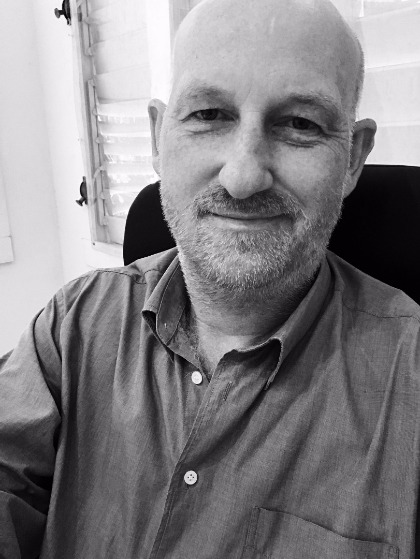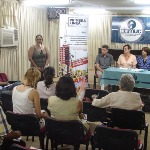How the Cuban Music Scene Can Still Develop in 2017 And How You Can Become Part of that Story
Cuba has opened to the world again and so did its music market. With the US-Cuban rapprochement and the Rolling Stones playing Havana, the year 2016 seemed like the start of another golden age. And part of this new reality was the first ever international music market on Cuban ground: Primera Linea (which is part of the WOMEX World Tour). But now the new US administration's rollbacks have raised questions. How will that affect the music market? Will Cuba continue to open up?
In our exclusive interview, Antonio Martinez, Cuban music expert and co-organiser of Primera Linea, tells us about the current state of affairs, about how musicians enjoy the same privileges as doctors in Cuba and about things you need to know to collaborate with Cuban musicians and music professionals.
Havana seems to be a music city unlike any other. Who are the stakeholders of the Cuban music scene nowadays?
Antonio Martinez: The Cuban music scene has a great variety from folkloric to classical music, rock and urban styles. There are nearly 18.000 professional musicians, all organized through official agencies and supervised by the Cuban Music Institut, ICM. You can contact and work with the musicians direct, but to make an international project happen, to actually make business, you need to go through these official agencies. That is why they are involved in the Primera Linea music meeting. (see picture, credits below)
Are there infrastructure issues for producing music in Cuba? And how about working there on tours or organizing tours of Cuban musicans abroad?
Cuba is constantly producing music, recorded or for live performance which is competitive enough to be commercialized worldwide. So there is infrastructure for the creative and producing process. What is currently under-developed is the distribution, promotion and marketing of the music. And on the creative side the exchange with musicians abroad and other genres also still has a lot more untapped potential it's a goldmine really.
Sometimes there are quite basic limitations on the island such as a power cuts or poor access to internet. But then musicians are one of the three groups being entitled to broadband internet at home (the others being doctors and lawyers). Is there position that exceptional in Cuba?
Being a musician in Cuba is a privileged position. Not only in terms of income, especially currency, or access to facilities like the internet. Musicians and artists are highly regarded by the society. Also more than 15% of the musicians tour internationally every year. Nearly no other professional segment has such figures.
So the idea of the „poor musician” we may have in other countries doesn’t apply in Cuba at all. What are other common mistakes and prejudices should one avoid when approaching Cuban musicans or trying to network with the scene here?
To work with Cuban musicians and professionals of the sector is really quite simple as they are very well prepared. High quality normally makes work easier. But on the same time musicians and producers could get much more out of their stay in Cuba if they spend some energy to understand and get in contact with the institutions. A lot of support can come from their side. Facilities like venues, equipment or a press conference. Stuff that you as a foreigner can hardly set up alone. Even the concert of the Rolling Stones in Havana last year, followed and watched worldwide, was a coproduction with the Cuban Music Institute.
Cuba’s scene did open up as a music business field recently. Now the Trump administration has rolled back much of the latest US-Cuban achievements. How does that affect the music market? Will the music market continue to open up?
The Cubans had a lot of faith in the rapprochement with the US. The tourism industry increased their prices up to 300%. The recent announcement subdued this optimism. But culture, and especially music was always a way to build bridges. So there will be a few well-known US artists performing in Cuba throughout the next months and Cuban artists are still touring the US. Remember that during George W. Bush's mandate nearly no Cuban artists got a visa for the US. I am sure that there are now possibilities for musicians, producers, companies - not only from the US but from everywhere - to develop interesting coorperations and productions with Cuba and its music. In fact, there is more happening every day now.
Say you have a venue or a collaborative project and are looking for Cuban musicians and partners. Where to find the right contacts?
There is nothing like eye-to-eye networking. We set up the Primera Linea music forum in 2016 not only for foreigners to find the right Cuban partners, also for them to identify international collaborators. A meeting point of and with the whole Cuban music industry. Of course involving showcasing artists, but also the professionals and services around the stage, the music infrastructure from education to recording facilities. The unique possibility to get to know the insiders of the scene. There is so much untapped potential. It really is a pity if an international project ends up with the second best fits, just because the top fits are unknown. Last but not least, you can find world class artists and international level facilities at very competitive prices.
And once you know whom to contact, how to best approach them?
Take them serious and present your idea direct and transparent. Cuba has a long and developed history in music industry. In fact it once was Latin America’s leading country in entertainment, technology, logistics. So you should not approach musicians nor managers as if you finally bring the graces of the west. You will meet a lot of musicians who toured the whole world, who are experienced and understand how distribution, promotion and marketing works. They just need partners to develop it all. It is best to ask them for their workarounds and ideas and find the best solutions for your joint, unique project - because what works good in London, might not work in an intercultural project with Cubans.
The second edition of Primera Linea - Havana International Music Forum will take place in Havana, Cuba, 20-23 September 2017
Interview by Paul Bräuer, 20 July 2017
Photo credits:
Antonio Martinez, Endirecto
Photo press conference in Havana, Cuba:
Migadalia Torres, vice president ARTEX,
Alejandro Guma, vice president Cuban Music Institut (ICM),
Natacha Garcia, Director of Communications ICM,
Laura Vilar, Director Music Investigation Centre CIDMUC
and Mabel Castillo, Director Artists Development ICM.
article posted by:Paul Bräuer, Piranha Arts




